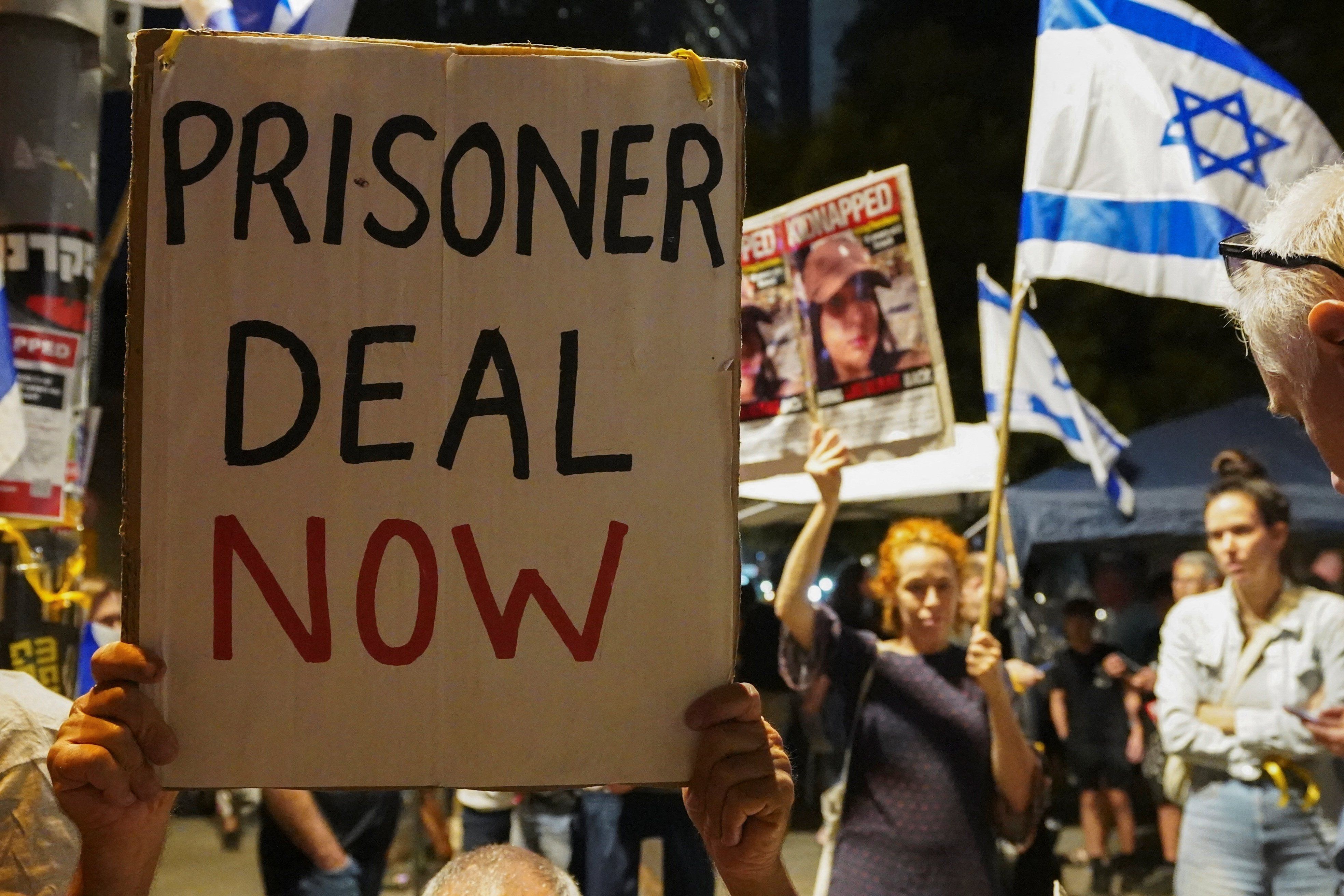As Israel hammers targets in Gaza, the West Bank, Lebanon, and Syria, Israeli Prime Minister Benjamin Netanyahu, aka Bibi, is getting blasted at home. On Saturday, thousands of Israelis protested in Tel Aviv, calling for him to quit, and some prominent Israelis are also calling for his resignation.
Former PM Ehud Barak told the Observer, “I don’t believe that the people trust Netanyahu to lead when he is under the burden of such a devastating event that just happened under his term.” Lt. Gen Dan Halutz, a former chief of staff of the Israel Defense Forces and commander of the Israeli Air Force, added that the embattled leader should “resign now, as we speak. There are better people to handle it.”
According to a new poll by the Maariv newspaper, 80% of Israelis believe Bibi should take public responsibility for the failures that led to Hamas’ Oct. 7 attacks. Worse yet for Bibi, 69% of his Likud party voters agree. When asked who is better suited to be prime minister, 49% picked National Unity party leader Benny Gantz versus 28% for Bibi, with the remainder undecided.
What were Bibi’s failures? The main one, according to most observers, was taking a “better the devil you know than the devil you don’t” approach. That strategy included weakening the Palestinian Fatah party while emboldening Hamas, to avoid advancing the concept of Palestinian statehood. Bibi’s government allowed Qatar to send substantial funds to Hamas, which the group diverted to its terrorist goals, including holding a military drill inside Gaza where Hamas built and “stormed” a mock Israeli settlement. Israel also increased work permits ten-fold, believing this would help “calm the waters” in Gaza.
Instead, under Bibi’s watch, religious hardliners dug in at both extremes. His government has been described as the most right-wing in Israel’s history, with senior cabinet figures supporting an expansionist “Land of Israel” agenda. It is no accident that Hamas named its operation “Al-Aqsa Flood,” referencing Muslim anger against the Israeli government’s decision to allow Jewish fundamentalists to pray at Islam’s third holiest site, the Al-Aqsa mosque, which Jews call the Temple Mount. Bibi’s attempts at judicial reform have also provoked a year of protests among Israelis who see this as an attempt by religious hardliners to take control of the country’s supreme court.
Finally, military observers criticize Bibi and the IDF for overly relying on technology, instead of boots on the ground, to secure the border with Gaza. Dennis Jett, a retired U.S. ambassador and professor of international affairs at Pennsylvania State University, told NPR ,"They built this very expensive wall with an Iron Dome missile system, and the wall failed and it was not heavily manned because they have concentrated a lot of effort in suppressing people in the West Bank," he says. "And the Iron Dome was overwhelmed."
Could the current conflict prove fatal to Bibi’s leadership? While his political obituary has been written before, and few expect Bibi to leave quietly, this time could prove different if Israeli losses mount and his unity coalition partners sense they would be better off without him.
